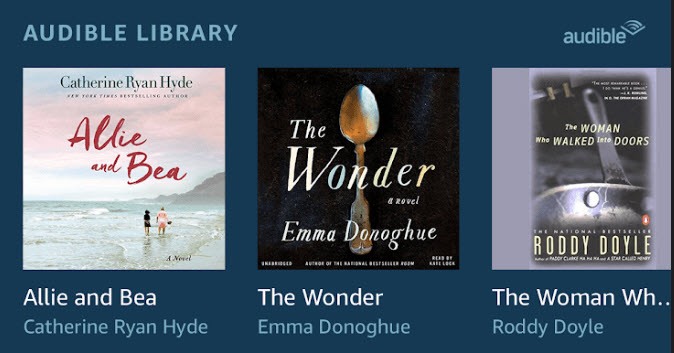
The skill connects to the RNIB call center via voice command. The RNIB packaged information about its services and tools into the RNIB Helpline Alexa skill back in April.

Voice activated technology is bringing us closer to a world where blind and partially sighted people can consume books on a level playing field with sighted people.” Accessible AlexaĪmazon has been working closely with the RNIB in coordinating and promoting new accessibility features for a while now. “If you start a book but don’t like it, you can immediately choose another one rather than waiting for your next book to arrive in the post. “There are some great advantages to accessing your Talking Books this way,” RNIB director of services David Clarke said. The Alexa skill is just faster, immediately streaming the audio files. The Alexa skill is not exclusive, as eligible people can still get audiobooks as CDs or on a USB. The service is even more popular in the wake of the COVID-19 pandemic, with a reported 1.33 million Talking Books distributed in the last year. The media formats have changed, and the catalog has expanded, but the Alexa skill expresses the same basic concept. The organizations that eventually became the RNIB set up the Talking Books program beginning with a gramophone record of Agatha Christie’s The Murder of Roger Ackroyd. Talking Books started in 1935 as a service specifically for people who lost their sight during World War I and could not learn Braille.

Users with limited or no eyesight can register for the RNIB Library, then use that membership to search for books by title, author or keywords. The RNIB created a Talking Books Alexa skill with a library of 34,000 audiobooks. The partnership extends Talking Books to a new format 86 years after it began.


Amazon Alexa in the United Kingdom can now play thousands of free audiobooks provided through the Royal National Institute of Blind People (RNIB) Talking Books service.


 0 kommentar(er)
0 kommentar(er)
